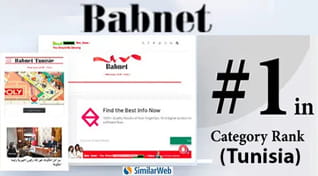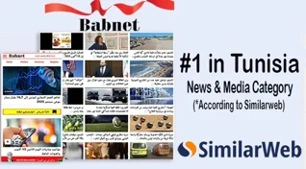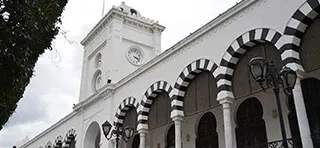Why the IMF will never understand the Tunisian exception
Karim Sliti (*)
I was really surprised by the frustrated response of the IMF on an article written by Jihen Chandoul and published in the Guardian . The IMF response titled “Response to The Guardian's Opinion Piece on Tunisia
. The IMF response titled “Response to The Guardian's Opinion Piece on Tunisia  ” was written with a tone that recall me the time of the Zine Al-Abideen Ben-Ali official Press releases.
” was written with a tone that recall me the time of the Zine Al-Abideen Ben-Ali official Press releases.
I was really surprised by the frustrated response of the IMF on an article written by Jihen Chandoul and published in the Guardian
 . The IMF response titled “Response to The Guardian's Opinion Piece on Tunisia
. The IMF response titled “Response to The Guardian's Opinion Piece on Tunisia  ” was written with a tone that recall me the time of the Zine Al-Abideen Ben-Ali official Press releases.
” was written with a tone that recall me the time of the Zine Al-Abideen Ben-Ali official Press releases.The IMF did not even give us the opportunity to comment on this response on its official website, this is, once again, one of the practices of the Ben-Ali’s dictatorship. Just we should remind the IMF that it is constructive to listen to different views as part of its understanding of the Tunisian context and how Tunisian people see the IMF intervention and effects on their daily lives.
While few Tunisian read the Guardian’s analysis, however there was a huge reputational damage occurred world widely to the IMF, and this was surely captured by the PR department. The last riots in Tunisia were widely linked to the execution of the instructions of the IMF by the Tunisian government.
The experience shows that the IMF is only supporting dictatorships in the region and worldwide and preventing them from collapsing. The IMF supported generously autocratic regime of Ben-Ali for a long time just because he was corrupted and fighting against the economic independence and the prosperity of his country. The IMF defended Ben-Ali regime also because he was fighting the identity of the Tunisian people.
Most of the Tunisians believe that The countries that succeeded to establish a better future to their people such us Singapore, Korea, UAE, Qatar, Turkey, Rwanda… did not applied the IMF directives and instructions, per contra, they tried to build their own way to success by their own experts and people.
What the IMF did not apprehend is that Tunisia is not Tunisia of the Ben-Ali’s era. Tunisia is not only numbers, budgets, projections, extrapolations and thoughts in the mind of a novice IMF expert. Tunisia is much more complicated. Tunisia does not need obvious analysis and Prosthetic solutions; Tunisia needs proactive and innovative solutions that should come from the Tunisians themselves not from an IMF expert that comes to Tunisia and his main concentration is only on his daily per-diem.
Tunisia does not need to decrease the number of civil servants neither their salaries. The Tunisian government needs to decrease the expenditure on non-prioritized activities such as subsidies to cultural and sportive activities, newspapers, radios, and should shut down many embassies in countries where the number of Tunisians is low. All expenditures with low value added to the people of Tunisia should be revised (oil coupons, company cars…). In the same time, the government should better monitor the exportation of the oil, gas, phosphates, salt and crude metals, this will rise revenues.
Also, the Tunisian government should try to export more civil servants to countries that needs expatriates in this field such us the Gulf countries.
What Tunisia needs today is a strong commitment to fight all types of corruption: bribery, embezzlement, abuse of power, police misconduct… along with developing common values of ethics and honesty among civil servants.
A quick shift from the French language to English language in high schools and universities is necessary in the short term in order to bring a fresh air to the country, attract higher EDI, export more work force world widely, activate the scientific research, and improve the Tunisian image in the tourism market.
The Tunisian people need dignity and prosperity, need to believe in their potential and should build their success by struggle, hard work, ethics and values. The Tunisian people is very attached to his Arabic and Islamic identity and this is a good start to build an excellent experience of success in the region, and this is what exactly the IMF doesn’t understand and doesn’t want to happen.
(*) Tunisian expert in governance and public sector reform.
























Comments
1 de 1 commentaires pour l'article 154611